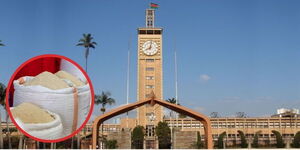In the past weeks, Kenyans have been concerned over an inflation of their electricity bills due to allegations of backdating by Kenya Power.
However, on Monday Energy CS Charles Keter clarified that there would be no backdating adding that Kenyans would no longer be charged for electricity based on estimates by the Kenya Power (KP).
With the uncertainties, Kenyans.co.ke research team sought to find out how the electricity bill is calculated when a subscriber buys tokens or pays the bill at the end of the month.
[caption caption="File image of Energy CS Charles Keter"] [/caption]
[/caption]
The team engaged Kenya Power in a conversation to explain the tariff charges.
"In the month of December 2017, when you consumed 0-50 units you paid Sh2.50 per Unit, for 51-1500 units consumed you were charged Sh12.75 per Unit and if you used more than 1500 you shall incur a bill of Sh21 per unit," the Kenya Power representative conveyed.
The official went further and explained that every consumer was charged a fixed amount of Sh174 which goes towards the billing or prepaid vending process with an inflation adjustment of Sh0.39.
Also factored in is the fuel cost charge - this is the money used for generation of electricity from thermal power plants. It varies monthly depending on the quantity of thermal generation and the cost of fuel.
All units billed to each postpaid consumer or purchased by each pre-paid consumer every month shall be liable to fuel cost charge.
Power consumers also incur a consumption fee and forex adjustment fee which is related to the fluctuation of hard currencies against the Kenyan Shilling for expenditure denominated in these currencies related to the power sector.
"All the charges other than the consumption fee are similar for postpay and prepay customers," the Kenya Power representative told Kenyans.co.ke.
The final figure is inclusive of a Water Resource Management Authority (WRMA) levy fee of Sh0.023, Energy Regulation Commission (ERC) levy Sh0.03 and a VAT set at 16%.
In the pre-paid token receipt, WARMA levy is combined with the ERC levy.
A little-known fact is the Rural Electrification Program (REP) levy in the bill which is set at 5% of the cost of the units consumed and is passed to the Rural Electrification Authority (REA) for implementation of rural electrification projects.
[caption caption="Sample of a post paid electricity bill"] [/caption]
[/caption]












